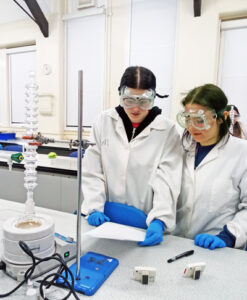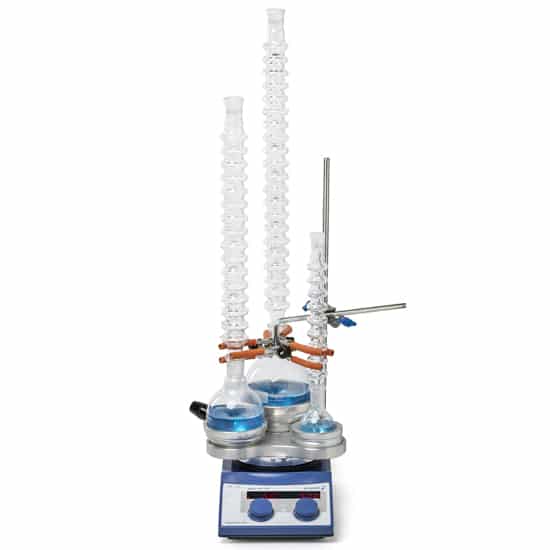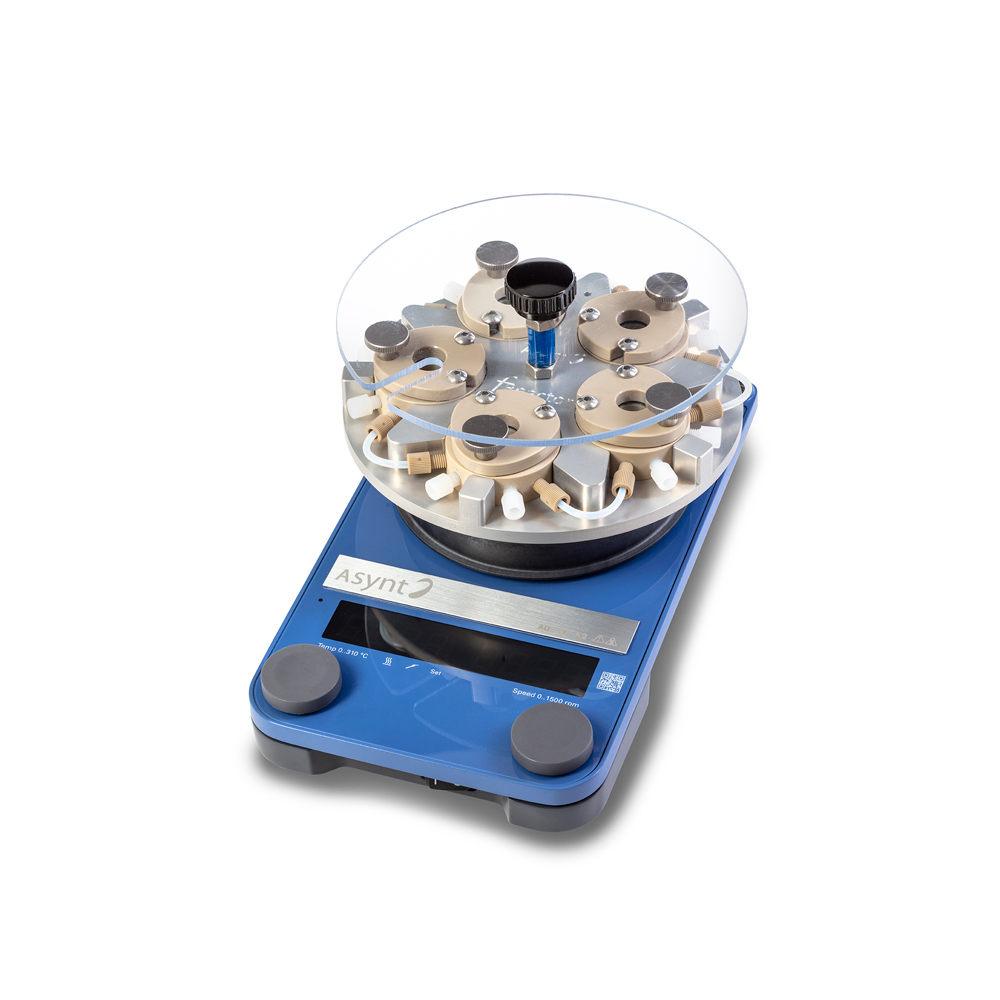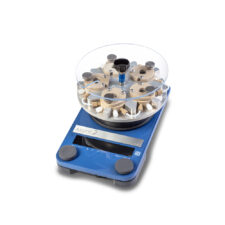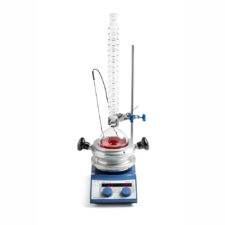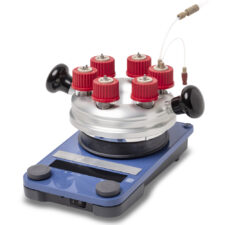As the field of chemistry evolves, it is essential that undergraduate chemistry teaching not only covers fundamental principles but also incorporates the advanced techniques and practices prevalent in industry and research. By doing so, students can prepare for the transition from academia into professional environments. We’ll explore three processes that can help enhance undergraduate chemistry labs: waterless air condensing, flow chemistry, and electrochemistry.
Waterless Condensing
Traditional Liebig condensers have long been a staple in chemistry laboratories for cooling and condensing vapours. However, they have several limitations that make them less ideal for modern industrial applications. The Liebig condenser relies on a continuous flow of water, which not only consumes a significant amount over extended periods of use, but also poses risks of leaks and floods.
Read: University of Liverpool Sustainability Report
CondenSyn provide an effective & sustainable alternative to water condensers
In contrast, the waterless air condenser offers a sustainable and efficient alternative. Asynt’s CondenSyn fills this niche, here are some of the benefits:
Water Conservation: CondenSyn eliminates the need for water. This is particularly important in a time when sustainable practices are increasingly prioritised.
Safety: Without water connections, there is no risk of flooding or water damage. This enhances the safety of laboratory environments, especially in teaching labs where students are still mastering basic techniques.
Ease of Use: The CondenSyn is designed for simplicity and reliability, reducing the maintenance burden on laboratory staff and allowing students to focus on their experiments rather than equipment troubleshooting.
By integrating the CondenSyn into undergraduate teaching labs, we can familiarise students with modern, sustainable practices that they will encounter in their professional careers.
Flow Chemistry
Flow chemistry, a process where chemical reactions are conducted in a continuous manner rather than in batch mode, is providing a range of benefits to the pharmaceutical, agrochemical, and chemical research sectors.
The fReactor is an excellent starting point for flow chemistry
The fReactor provides an excellent starting point for teaching flow chemistry principles to undergraduates. Here are a few reasons why:
Efficiency and Scalability: Flow chemistry allows for precise control over reaction conditions, leading to higher yields and faster reactions. This is in contrast to traditional batch processes that can be time-consuming and less efficient.
Safety: Continuous flow systems typically handle smaller quantities of hazardous chemicals at any given time, reducing the risk of accidents. This is particularly important in industrial settings where safety is critical and exotherms need to be controlled.
Real-World Relevance: Most Contract Research Organizations (CROs), pharmaceutical companies, and agrochemical companies now utilise flow chemistry platforms. Introducing students to this technology prepares them for the workflows and methodologies they will encounter in industry.
The fReactor is designed with educational purposes in mind, offering a hands-on experience with continuous stirred tank reactors (CSTR) and other flow chemistry systems. By incorporating the fReactor into undergraduate labs, we can provide students with practical knowledge and skills that are highly valued.
Electrochemistry
Electrochemistry, the study of chemical processes that cause electrons to move, plays a critical role in various industries, including electroplating, and organic synthesis. Despite its importance, electrochemistry is often underrepresented in undergraduate curricula. ElectroReact can help address this by providing an accessible platform for teaching electrochemical techniques.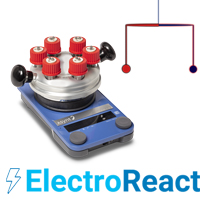 The ElectroReact provides an accessible starting point for electrochemistry.
The ElectroReact provides an accessible starting point for electrochemistry.
Sustainable Chemistry: Electrochemical processes often offer more sustainable alternatives to traditional methods, reducing the need for harsh chemicals and minimizing waste. This aligns with the growing emphasis on sustainable chemistry in both academia and industry.
Innovation and Application: Electrochemistry is at the forefront of innovation in areas like battery technology, corrosion prevention, and chemical synthesis. Providing students with a solid foundation in electrochemistry opens doors to a wide range of career opportunities.
Practical Skills: Understanding electrochemical principles and techniques equips students with skills that are directly applicable in research and industry settings.
ElectroReact is an ideal tool for demonstrating the principles and applications of electrochemistry. By integrating this technology into the curriculum, we can help students gain a comprehensive understanding of electrochemical processes and their significance in modern science and industry.
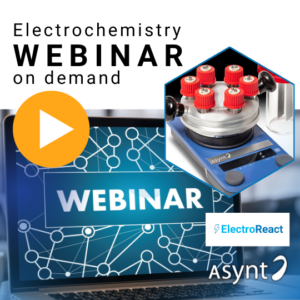 Free on demand webinar: An introduction to electrochemistry & ElectroReact
Free on demand webinar: An introduction to electrochemistry & ElectroReact
Conclusion:
By introducing tools and techniques such as the CondenSyn waterless air condenser, the fReactor for flow chemistry, and ElectroReact for electrochemistry into undergraduate chemistry teaching, we can provide students with the skills and knowledge they need to transition into their future careers.
We’re here to help: please don’t hesitate to contact us if we can help you design an undergraduate course to teach the above practices or if you need any further help and information. We are here to provide support to enable the integration of these essential industry practices into undergraduate chemistry teaching labs and programs.

